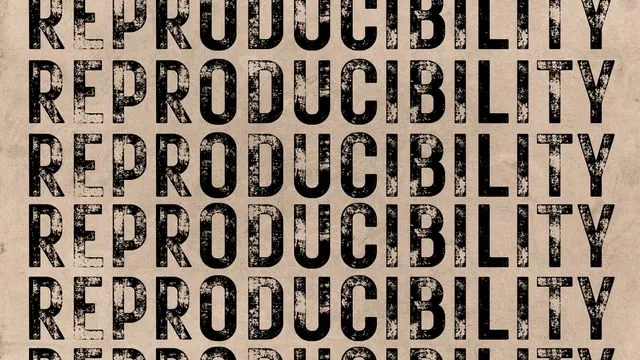
Publish or Perish? Scientists Point to This Toxic Culture as Key Factor in Reproducibility Crisis!
2025-01-22
Author: Wei Ling
The Reproducibility Crisis: A Trust Issue for Science
Reproducibility is the cornerstone of scientific integrity; it fosters trust and enables researchers to build on each other's work effectively. Unfortunately, evidence suggests that this trust is waning. A 2016 survey highlighted that more than 70% of researchers reported being unable to reproduce others' experiments, and astonishingly, over 50% struggled to replicate their own findings. The crisis has resonated deeply, with 83% of respondents acknowledging a reproducibility crisis, and over half deeming it significant.
Insights from Over 1,600 Biomedical Scientists Worldwide
In their extensive study, Cobey and her team surveyed over 1,600 biomedical scientists across more than 80 countries. They defined reproducibility as the ability to replicate a study's methods and achieve consistent outcomes. The respondents consisted mainly of faculty members, with a notable majority from clinical research roles.
Alarmingly, 72% of participants concurred that a reproducibility crisis plagues biomedicine. Among them, 27% characterized this crisis as significant. Specific areas, such as clinical and in vivo research, were highlighted, with few participants believing most papers in these categories demonstrated reproducibility.
The Dark Side of the Publish or Perish Culture
The survey shed light on a significant culprit of this crisis: the “publish or perish” mentality. Over 62% of scientists attributed irreproducibility to this pervasive pressure that prioritizes quantity of publications over the quality of research. This cycle of anxiety and relentless competition stifles innovation and exacerbates the production of unreliable research findings.
Cobey and her colleagues pointed out a long-standing concern in the academic world: an overemphasis on publication quantity damages the integrity and quality of scientific work. The study revealed that only 16% of respondents believed their institutions had effective procedures in place to foster reproducibility, while 67% felt their institutions favored novel research over replication studies.
Time for Change: Supporting a Culture of Reproducibility!
The findings of this research underscore the urgent need for systemic changes in the academic landscape. Cobey's team intends for their work to inform training and interventions designed to bolster reproducibility. They also advocate for continuous monitoring of researchers' perceptions, suggesting that periodic surveys could track how attitudes and behaviors evolve over time.
In summary, the current crisis in scientific reproducibility, particularly in biomedicine, is largely rooted in a toxic research culture of "publish or perish." As scientists call for reforms, the overarching goal will be to ensure that science not only thrives in quantity but also in quality, ultimately putting the best interests of public health at the forefront of research endeavors. A reckoning is on the horizon—will the scientific community rise to the challenge?



 Brasil (PT)
Brasil (PT)
 Canada (EN)
Canada (EN)
 Chile (ES)
Chile (ES)
 Česko (CS)
Česko (CS)
 대한민국 (KO)
대한민국 (KO)
 España (ES)
España (ES)
 France (FR)
France (FR)
 Hong Kong (EN)
Hong Kong (EN)
 Italia (IT)
Italia (IT)
 日本 (JA)
日本 (JA)
 Magyarország (HU)
Magyarország (HU)
 Norge (NO)
Norge (NO)
 Polska (PL)
Polska (PL)
 Schweiz (DE)
Schweiz (DE)
 Singapore (EN)
Singapore (EN)
 Sverige (SV)
Sverige (SV)
 Suomi (FI)
Suomi (FI)
 Türkiye (TR)
Türkiye (TR)
 الإمارات العربية المتحدة (AR)
الإمارات العربية المتحدة (AR)